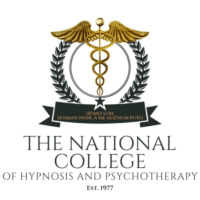
Guiding Principles:
- Protection of the public and clients – This aims to ensure that students are prepared in a manner that eliminates or reduces risk to the absolute minimum necessary.
- Protection of the Student – In this case, the student is safeguarded and taught the best practice to reduce the risk of making errors that place others at risk.
- Regular Assessment of Course Standards – This ensures that the courses are continually developed by including the latest developments in hypnotherapy, Hypno-psychotherapeutic counselling, Hypno-psychotherapy and related fields.
Code of Ethics:
- The welfare of participants is paramount, whether they are volunteer students, members of the NCHP, the NSTT or the general public. No practical sessions must take place without written consent from the participants, who are to be made aware of their right to withdraw at any point. Participants must only participate in procedures in whose rationale and practice the student practitioner has shown adequate theoretical knowledge. When the supervising tutor has any reason to question the safety of the work in progress, they shall halt the session to protect any participants’ well-being.
- A course contract should protect the confidentiality of the work carried out by any student. This document should include any comments and assessments made by examiners, tutors or supervisors. As soon as practicable, the tutor will make students aware of any comments that may help them develop and any comments of concern regarding the safety of their work or knowledge.
- Assessment of skills and knowledge will be to the standards agreed by NCHP. These should also meet the highest standards available and be at least to the National Occupational Standards for hypnotherapy level and UKCP standards.
- The development of knowledge and skills is carried out progressively and encourages the students to be aware of their boundaries and the need for constant development throughout their careers.
- All exploitation is abuse. No trainer or course provider shall behave in a manner that shall give rise to the exploitation of any participant, student or graduate. This requirement includes any inappropriate personal or exploitative relationship or activity inside or outside the training environment. Should there be any indication that such an inappropriate personal or exploitative relationship exists or is developing, then the trainer/tutor shall make arrangements with the NCHP for the student to continue learning in a way that severs the link between the relationship and the training environment. Trainers/tutors should be aware that the development of such a relationship may result in the termination of training work with the NCHP.
- The advertising of courses must be restricted to factual material. All claims regarding standards and facilities available must be accurate and verifiable. There shall be no claims about potential career opportunities. It is not acceptable to refer in advertising to specific outcomes related to treatment efficacy regardless of the media used.
- Trainers shall not make inaccurate claims regarding qualifications that equip them or any person teaching, tutoring, or supervising their course for such a role.
Code of Conduct for Training:
This code is developed from the principles listed above and applies to the delivery of the training programme.
- Professional Indemnity Insurance – as in therapeutic practice, there is a prerequisite for the trainer or tutor to maintain cover appropriate to the training activity carried out and to a minimum level of £1million.
- Relationship with the NCHP – this clause applies to updating information relevant to the accreditation of the trainer, the courses provided by them and anyone delivering services on their behalf. The following need to be reported:
- Any personal or contact details change.
- Any proposed variations in content or delivery from that specified in the NCHP standard materials (contents of the online school, lesson plans and digital presentations)
- Any criminal or civil judgements against any individual, training body or company delivering training on behalf of the NCHP
- Any links or associations with other training bodies, other professional bodies, associations, registrations or healthcare practice (whether involved in the training provisions or not). This requirement includes the personal practices of trainers and tutors
- Relationships with Other Training and Healthcare Providers – trainers will respect the course provisions of other trainers in psychotherapy and any other branch of healthcare provision. They shall also respect the qualifications and boundaries of other such providers.
- Supervision in Training – supervisors and tutors should ensure that they can meet NCHP expectations relating to their reasonable availability to students and trainees and conduct all supervision following their UKCP supervision registration requirements. Training supervision must not be provided by any tutor or trainer not currently registered with the UKCP as a supervisor.
- Training Venues – all premises and venues used for training shall be of a good standard and respect the needs of all participants in the training process, including social, physical and psychological needs. In addition, they shall comply with all current health and safety legislation requirements.
- Use of Credentials – only valid qualifications, registrations and accreditations relating to the courses provided and the training staff shall be used. Valid means academic and professional qualifications recognised in the UK.
- Complaints and Discipline – all those associated with the course provision and training shall be subject to the complaints and disciplinary procedures of the NCHP. Any incorporated bodies shall be recognised as legal individuals and be treated as such and as such will be amenable to those procedures as if they were individual persons.
Date of the last amendment to this document and ratification by The Academic Board – 16-5-22.
